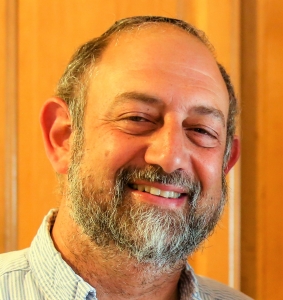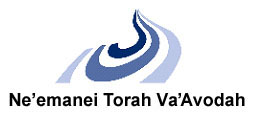Project Background
A worrying trend seems to be prevailing among Israel’s Religious Zionist demographic: that of a religious and dogmatic radicalization. Such a radicalization only deepens the already troublesome schism that divides the religious sector from the secular sector—eliciting a fundamentally discordant Israeli society. Although they share a religious outlook, Israel’s Religious Zionist demographic contains an array of differing “streams”, with each stream upholding different worldviews. While a minority of the more conservative streams share an affinity and resemblance to the ultra-orthodox demographic in their respective worldviews and practices, the more ‘open’ streams, who are by no means a minority among the Religious Zionists, advocate values that are akin to that of the progressive secular world: egalitarianism, pluralism, inclusivity, and tolerance. So, how has a small minority stream, among an array of differing streams, seemingly managed to shift the worldview of their demographic to resemble that of their own? The answer lies within the religious public school system.
In today’s Religious Zionist society, highly talented educators committed to the vision of a liberal, progressive, and committed Religious Zionism are not easily found. Graduates of Modern Orthodox seminaries, yeshivot, and colleges (with the Modern orthodox movement denoting a more progressive worldview) do not tend to enter the world of education and those who do—often depart for alternative careers early on. The result is that those who hold a less liberal, more ultra-Orthodox inclination are those who are educating the children in public religious schools. This, of course, leads to further radicalization in the graduates of those schools, as they have seen a limited array of role models and examples. In this way, the cycle of radicalization perpetuates itself, with each generation becoming increasingly radicalized. This is where we, Ne’emanei Torah Va’Avodah (NTV), hope to step in and provide the religious education system with a diversity of worldviews, promoting liberal and progressive values, while preserving the demographic’s religious identity.
Each year, yeshivot and midrashot in the more tolerant Orthodox community (e.g., Yeshivat Ma’ale Gilboa, Midreshet Lindenbaum, Beit Midrash for Women—Migdal Oz, Yeshivat Machanayim, Yeshivat Orot Shaul) graduate approximately 350 students. Of these, roughly 80 have the potential to serve as leaders in the world of education. By identifying talented educators, accompanying them, and strategically placing them in various religious schools, we can ensure that capable, committed, and progressive-minded teachers find their way to the classroom; furthermore, we may provide students within the religious education system with a diverse understanding of Judaism and of Israeli society in general— while curtailing the trend of systematic radicalization.
As such, our goals are as follows:
- To locate, engage and recruit these graduates, who uphold a more progressive and liberally inclined worldview into the field of education.
- To strategically place said graduates among various religious schools within the religious Zionist society
- To provide students of the religious education system with a diversity of worldviews, with an emphasis on promoting a more modern and pluralistic relation to Judaism and the broader Israeli society.
- To curtail and/or diminish the trend of religious radicalization; thus, engendering a more tolerant and inclusive Israeli society.
- To establish an “Educational Administrator’s Forum” which shall be tasked with overseeing and ensuring the efficiency and success of the project.
Objectives
- 40 ‘open’ educators will be identified, supported, and strategically placed throughout the religious education system each year.
- Approximately new 2,400 students each year (grades 1-12) will be exposed to liberal contents and diverse worldviews in their school environment.
- The percentage of first grade students studying in separate religious education will drop from 54% to 50%.
- 30 School principals will take an active part in the “Educational Administrator’s Forum” and attend seminars and monthly meetings and implement the forum’s missions within their schools.
Current Standings
It is apt to conclude that, thus far, the project has been a massive success. Since its inception in 2015, over 200 educators have been identified, recruited and placed in schools within the religious education system. Within these schools, our teachers have successfully legitimized and promoted moderate and/or progressive values among their students. The inception of these teachers into their respective schools has only accelerated the employment of even more moderate/liberal-minded educators within the system—further diversifying the educational setup in these schools. Finally, the project has, in addition, implemented an “Educational Administrator’s Forum”, which shall act to oversee the project’s efficiency and ensure its success.

Rabbi Eli Rubnstein
Bari Pardes Hanna, Head of the Latin America Program at the Emuna College, teaches at the Latin America Department at the Lindenbaum College. He founded the "La Casa" community in Buenos Aires and was a Bnei Akiva emissary there. Holds a B.e.d degree in Education. Married to Reut and father to Shachar and Uri.

Rabbi Dr. Meir Eckstein
Married to Perel, father of Chaya and Daniel, Nava and Yehiam, Ayelet and all, Hoodia, and Naomi. Clinical psychologist, founder of the Amit Noga studio and the Amit Nachshon yeshiva and initiator of various educational programs. Member of Beit Hillel.








